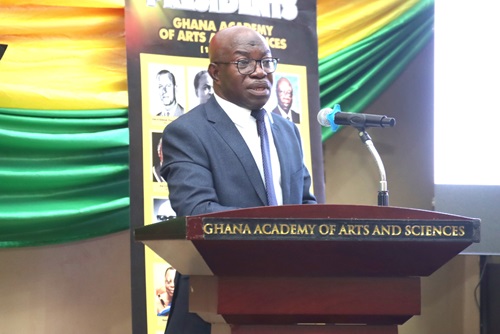Ghana’s effort to achieve Sustainable Development Goal 6 (SDG 6) is under serious threat due to the devastation caused by illegal mining commonly known as galamsey.
A professor of Geography at the University of Ghana, Professor Samuel Agyei-Mensah, has indicated that growing pollution of water bodies resulting from illegal mining operations are undermining efforts to manage the country’s water resources effectively.
SDG 6 is a critical part of the UN 2030 Agenda for Sustainable Development, which aims to provide universal access to safe and affordable drinking water, improve sanitation, and protect water-related ecosystems.
With key water bodies across the country being contaminated by harmful chemicals such as mercury and cyanide, he said it was unlikely the country would be able to achieve such a target by 2030.
“It’s unlikely Ghana will be able to attain SDG 6 because the safety of the water we drink has been comprised by the activities of illegal mining and with just six years to reach the target, I don’t think we are ready,” Prof. Agyei-Mensah said.
He was delivering an inaugural lecture at the Ghana Academy of Arts and Sciences in Accra yesterday on the topic “Flavours of Spatial Diversity in Drinking Water Access in Ghana.”
Safe drinking water
According to Prof. Agyei-Mensah, while Ghana successfully met the Millennium Development Goals (MDG) target of providing improved water sources, such as protected wells, pipe-borne water outside dwellings and public standpipes, the SDG’s focus on safe drinking water presented a much bigger challenge.

He cited the increased reliance on sachet water in many areas, particularly in mining communities, as a key indication of the country’s struggle to provide safe water.
In spite of the growing popularity of sachet water, the professor warned against over-reliance on it as a temporary solution.
“Sachet water provides relief but is not sustainable in the long term. We must focus on expanding pipe-borne water infrastructure to ensure every community has access to safe drinking water,” he urged.
He also raised concerns about the widespread use of boreholes across the country, questioning the quality of water sourced from those systems.
“Borehole water has become common in both the northern and southern parts of the country, but we need stricter regulation to ensure it meets safety standards,” he stressed.
Solutions
He further called for a national summit on water access, involving stakeholders from academia, government, civil society and development partners, to develop a medium and long-term strategy for providing safe and affordable water across the country.
He highlighted the urgent need for disease mapping in illegal mining areas, as well as further research into the health implications of contaminated water sources.
Prof. Agyei-Mensah also called for stricter enforcement of environmental regulations and a review of buffer zone policies surrounding water bodies and forests.
“The current buffer zones, often set at 100 meters, are inadequate. These need to be reassessed to ensure the protection of our water resources,” he said.
ALSO READ:


